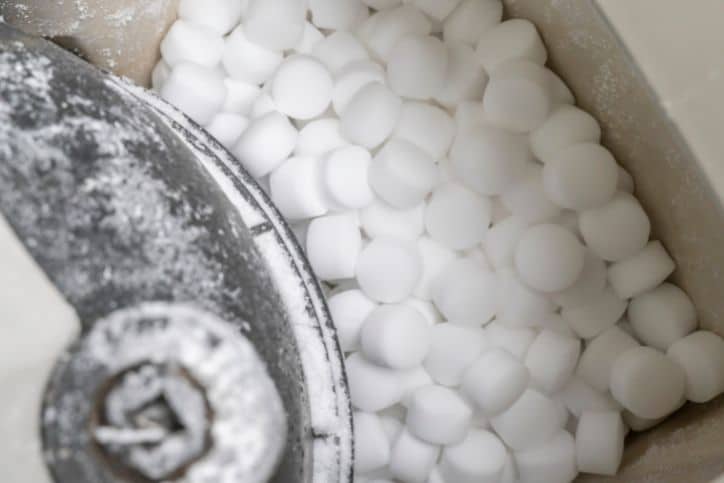
Many people who are new to water softening hear about something called “resin” and wonder how it works. Simply put, resin is crucial to collecting the hard water minerals in your water through a process known as ion exchange. As you look over your water softening system choices, it’s important to understand how the process works and learn what the role of resin is in water softening.
How Water Softening Works
If you know anything about water softeners, you probably know that some part of the process involves salt. While this is true, the process wouldn’t function effectively without adding resin beads. Resin beads are small plastic spheres that sit together in a bed within your softener.
These beads are negatively charged, which means they’ll draw in molecules with a positive charge. At the start of the process, resin beads have a sodium coating—sodium ions have a positive charge. The “ion exchange” process begins when the magnesium and calcium in your water pass through the softener, dislodging the sodium ions from the resin beads.
Now that the sodium ions are off the resin, the beads can work on collecting magnesium and calcium. However, once that job is done, where do those hardness minerals go? That’s where salt comes in. The regeneration process introduces a brine solution that returns sodium ions to the resin beads, and the process can begin again.
Water Softener vs. Water Conditioner
A water softener takes the hard minerals out of your water, while a water conditioner filters chlorine, chemicals, toxins, and pollutants—and it can soften water with a separate resin bed. If all you need is soft water, a softener is the way to go. However, if you’re in the market for softened and better tasting filtered water, contact us for water softeners/conditioners in Las Vegas.
Alternatives to Resin
Resin beads are essential to the water softening process. At present, there are no alternatives that exist that would still allow your water softener to function to remove the hardness from the water supply.
Now that you understand the role of resin in water softening, you should have a better sense of how resin can influence your system’s performance. Choose a quality water treatment team to get the best results!
Tags: Choosing the Right Water Filtration System, water softener